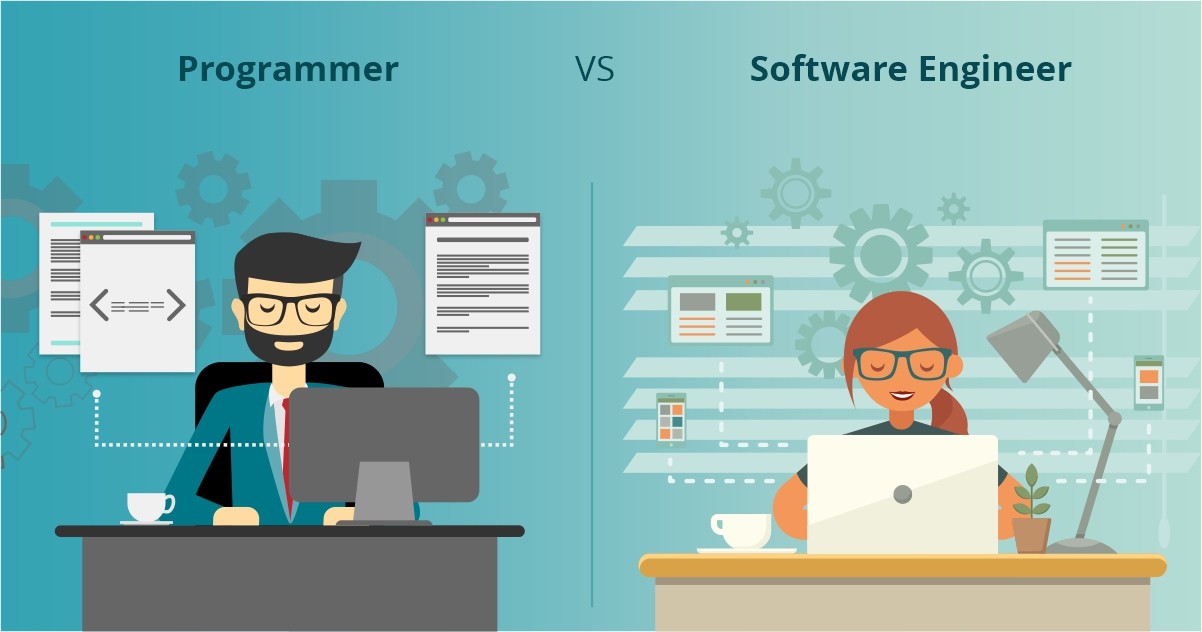What it takes to be a great software engineer
12 Dec 2023Thoughts on software engineering
In most information science degree programs, a huge emphasis is necessarily placed on learning the ins and outs of various programming languages. However, This being said, being a good and efficient programmer does not necessarily make someone a good software engineer. Software engineering, on the other hand, is a much broader term. The distinction between software engineering and programming is analogous to and as wide as the difference between a Contractor, an Architect, and an Engineer. Software engineering as a discipline encompasses aspects of teamwork and design and requires higher-order conceptual understanding. A great programmer can implement, an architect designs and a software engineer blends the two and ensures structure and soundness.
Software engineering in school
For a computer science curriculum to be considered great teach programming focuses much more on the engineering aspect. As a beginning computer science student, you are unwittingly given the language-agnostic tools to begin to engineer and craft software. Early on students are introduced to data structures and algorithms that are not specific to any language. It is perfectly possible to write valid code in c, C++ Lisp, java, or any other language without a formal knowledge of data structures, or algorithms but it would be nearly impossible to engineer, or design anything of particular complexity. At the same time data structures and algorithms are just tools and do not an engineer make.
The human element
The final piece to mastering software engineering is bimodal involving interpersonal and project design elements. The cohesiveness of the team, architecture, and design of the software. This step takes the building blocks. Like many ICS courses, software engineering courses teach you how to program, more importantly however you learn how to interact and work in a team. Interpersonal skills are critical and top of mind for any great software engineer. Although there are often people selected or hired for the specific purpose of project management, the ultimate responsibility for the outcome of any given work falls on the individuals that directly produce it. Being a software engineer means being self-motivated, and working well with others.
Be an engineer, not a programmer
In conclusion, as software engineers, we are responsible for more than just programming. The issues with effective teamwork are extensive. Managing a codebase using git, and Kanban boards, keeping on task, and dealing with team members who do not live up to the team’s expectations are all part of the journey. Managing personalities and organizing people toward a common goal is the fundamental responsibility of the software engineer. Software engineering invariably requires a mastery of data structures, and algorithms as well as an aptitude for creative thinking. Finally Software engineering bridges the gap between art and science, as design choices and technical choices all fall on the software engineer.
